- Home
- James Rollins
The Demon Crown: A Sigma Force Novel Page 32
The Demon Crown: A Sigma Force Novel Read online
Page 32
“Like discovering a shadow but not the object casting it.”
“Exactly.” Oshiro offered a rare smile, warming up to Ken, as competing colleagues sometimes do when talking shop. “The gene is ubiquitous across all incarnations of the species, but the protein it encodes still escapes us. It’s why we need the best minds.”
Off the cuff, Ken could already think of several different reasons for the missing protein, but he stayed silent. Especially as he felt Oshiro was dancing toward an invitation to work here . . . an invitation that Ken dared not refuse. So instead, he quickly changed the subject, pointing to the back of the lab, to a set of prominent red steel doors.
“What’s through there?”
Oshiro put his hands on his hips, his features hardening into a scowl. “Nothing for us to worry about, apparently. All I know is that the team leader on that side—Dr. Hamada—frequently commandeers our entire lab, shooing us out of here like so many flies. It’s very aggravating and disruptive.”
“What are they researching?”
He shrugged. “All I know is that it has something to do with the evolutionary history of the Odokuro.”
Ken frowned. “Why? To what end?”
Another dismissive shrug, as if to state It’s not my research, so why should I care?
Ken allowed himself to be led away. In the past, he had run into such narrow-mindedness among other scientists. It was an easy trap to fall into, one that led to mistakes and missed opportunities. Over the years, he had learned it was better not to suppress scientific curiosity in any form.
A lesson that was especially important here.
As Oshiro continued his tour, Ken kept a sidelong focus on the red doors.
What’s really going on behind there?
8:35 A.M.
Kneeling at his office table, Takashi tented his fingers before his lips as he studied the camera feed on his laptop. The view was into a locked hospital ward, with the lens focused on a single bed. The woman secured there slipped into and out of delirium, occasionally thrashing in her restraints, mostly sleeping. Her brow shone with fever sweat, her lips dried and cracked.
Still, he recognized the beauty behind the illness. Her mixed blood—Asian and European—had seemed to draw out the best of both heritages. Her bruised lips, if painted, would form a perfect bow. Her cheekbones, arched high and wide, narrowed to a perfect chin. Her black hair was cut straight and sharp, both efficient yet accenting her features with a simplicity that reminded him of his beloved Miu.
There was a soft knock on the door before it swung open.
His personal secretary bowed and stepped aside to allow the woman Takashi had summoned into his office. Valya entered like a storm, her ice-blue eyes flashing with lightning. The rain-heavy clouds rolling over Mount Fuji greeted her with a clap of thunder that rattled the windows.
This time, the woman cast aside any pretense of masking her pale features. He was momentarily unsettled. She looked so ethereal, ghostly. It was as if the black tattoo were all that was holding her to this plane.
She bowed deeply and upon his signal, knelt opposite him.
“Chūnin Mikhailov,” he greeted her, using her new title, a position she had inherited from Masahiro.
She kept her chin down. Her head bowed incrementally at this acknowledgment of her raised status.
He returned his attention to the laptop screen and to the captive strapped on the bed. “She is with child?”
“Hai. Dr. Hamada has confirmed her pregnancy.”
“Very good.”
He studied the woman on the screen. She and the others had cost him his grandson. It was only right for him to repay them in kind.
He pictured what would happen next.
Back during the war, he had visited the Imperial Army’s research camps at Zhongma Fortress. There, too, pregnant women—Chinese mothers forcibly removed from nearby villages—were experimented upon with chemical and biological weapons. Afterward, their babies were cut from their wombs without anesthesia. He could still hear their screams, see those weak arms reaching for bloody children before death claimed them.
Back then, new to the Kage, he had to hide his revulsion at such atrocities.
Now I will relish it.
He intended for another to suffer as much.
“The American?” he asked.
“No word. But if he survived, he will come for her.” The woman paused too deliberately, clearly refraining from speaking.
“What is it?”
She glanced to the screen, then back down. “You said before that there was no cure for what afflicts her.”
He understood the question behind this statement. “You wonder why we took such a risk in releasing something we could not control.”
“Hai, Jōnin Ito.”
“It is not out of madness, but calculation,” he assured her. “What was released in Hawaii was only an example. Once the world comprehends the threat, only then will we move forward with the second phase.”
She glanced up, her brows pinched. “Second phase?”
“Ikikauō Atoll was not our only staging ground.”
Her eyes widened with shock.
“Other locations are ready to move upon my order. To spread the Odokuro across Europe, Russia, China, Australia. Unfortunately, we lost control of our site off the coast of Brazil, almost exposing our plan for South America. Still, by our conservative calculations, the world will be overrun in two years.”
She looked aghast, anger threading her words. “So you mean to destroy the world?”
“No.” He matched her anger with cold command. “Like I said, it’s not madness, but calculation.”
He read her confusion and sighed, lowering his voice as if quieting a child. “What drugs do you think are the most profitable?”
She was taken aback by the abrupt change and simply shook her head.
“It is not a medication that can cure a disease. There’s limited profit in such one-time fixes. Instead, consider those drugs needed to treat the symptoms from an incurable disease. That is a guaranteed lifelong revenue stream. It is a lesson I learned long ago as the founder of this company.”
“And you’re applying this lesson here?”
He didn’t bother acknowledging the obvious.
“But how?” she asked.
“I don’t intend to destroy the world, but simply bring it to its knees.”
“Still, if there’s no cure . . . ?” she asked haltingly, trying to understand.
“In a year, when the world is suffering and in chaos, our corporation will offer a palliative for their symptoms. While we have no cure for the parasitized, we have developed an aerial spray that will kill the adult wasp populations. It took us over two decades to perfect. It’s extremely toxic, nearly impossible to duplicate, and will do great damage. Still, it will allow countries to survive, to limp along.”
Comprehension slowly dawned in her eyes. “Yet, they’ll never be safe. With their environment contaminated and parasitized, the Odokuro will rise again and again.”
“An incurable disease that only we can knock back down and hold in check.”
“So, in the end, the world will become dependent on Japan, on your corporation.”
“And if anyone resists,” he said with a shrug, “we hold back the spraying for a few months until they fall back in line.”
“But what about Japan?”
“We will remain unscathed during the initial overrun. We already have the natural advantage of being isolated and quarantined by our surrounding seas, but a secret program of spraying will commence immediately to protect our shores. We will be the only country standing strong in a year, ready to offer relief to those who bend a knee to a new Imperial Japan.”
She sat back on her ankles, absorbing this all. “You’ll have taken over the world without firing a single shot.”
“After nine decades, I’ve learned armies rise and fall. From the Tokugawa shoguns who succumbed to Japan’s empe
rors long ago, to those same emperors who were brought low by Allied forces. True strength is not found at the tip of a sword or the barrel of a gun, but in ingenuity and innovation.”
Chūnin Mikhailov stared back at him, her eyes unreadable now, reflecting the dark storm beyond the windows. Finally, she closed her eyes and lowered her forehead to the floor.
He accepted her deference by folding his fingers in his lap, knowing soon . . .
. . . the entire world will be forced to bow before us.
32
May 9, 1:44 A.M. CEST
Wieliczka, Poland
“Off to the salt mines, we go!” Monk said cheerily.
Elena cringed at the clank of the large red elevator doors as they were slammed closed. She concentrated on breathing through her nose and out her mouth, a calming technique she had learned from the old Oprah Winfrey Show. While growing up as the daughter of migrant workers, that was all her family could afford as “therapy.”
Ever since she was a young girl, she could never tolerate cramped spaces. Her parents believed it was a buried memory from when her family was led through a tunnel from a warehouse in Tijuana to San Diego. It was a route used by the Sinaloa Cartel to move drugs—and for the right price, workers and families could buy passage through to the United States.
“How are you holding up?” Sam asked her, keeping close by her side as the elevator sank into the bowels of the earth.
Her fingertips tapped the two crucifixes hanging from the chain of her reading glasses, a nervous tic. She forced her hand down. “I keep telling myself we’re just heading into the basement of a library.”
“Then this place has a pretty darned deep basement,” Sam said with a wry grin.
She scolded him with a look that said, You’re not helping.
“Sorry.” He held out a hand. “Maybe this will serve as an apology.”
She wanted to decline, refusing to be seen as the sort of woman who needed to lean on a man.
Screw it.
She took his hand. His palm was dry and warm. He squeezed with a generous amount of reassurance. She refused to be embarrassed. On the way here, she had made no effort to hide her fear, preferring to be frank with everyone in case she had to abandon the mine and leave this hunt to the others.
Her plan forward was to ignore the bigger picture—like being buried a thousand feet underground—and concentrate on moving one step at a time. Of course, she couldn’t do that while stuck in an elevator. The enclosed space trapped her anxiety, amplifying her fear.
Across the cage, Kat turned to their two escorts. After arriving at the mine, Damian Slaski had introduced them to the mine’s public relations officer, a young pretty blond woman named Clara Baranska. From the way the dour-faced Slaski kept looking doggedly at the woman, he was plainly infatuated. Elena suspected the man’s frequent visits to the nearby museum weren’t entirely based on research alone.
“Dr. Slaski,” Kat said, “you mentioned before that the Hondius map had two amber sites marked on it. Were either of them anywhere near the Chapel of the Seashell?”
Elena focused on his answer, using the conversation to distract her from the descent into the mine.
“No, that does not appear to be the case. Both sites were small and emptied of their deposits long before Mr. Smithson visited here.”
Clara nodded. “No mine would let such a discovery go to waste. While salt was valuable in the past, amber was much more so. Even today, a modest amber bracelet costs the equivalent of a Rolex watch.”
“Because of such value,” Slaski added, “many sites were pillaged by black miners.”
As a Hispanic woman, Elena had a knee-jerk reaction to such casual racism. “What do you mean by black miners?”
Slaski clarified his statement. “I’m referring to miners who raid other excavations or secretly pocket a portion of their own load, then sell the stolen gain on the black market. In fact, two out of every three pieces of amber sold today were acquired illegally.”
The bump of the elevator interrupted the conversation. As the doors opened, music flowed inside, solemn and melancholy. Upon hearing this, Elena felt a chill that had nothing to do with the cool sixty degrees of the mine. The melody had a foreboding quality to it, as if marking all their funerals.
Clara had a more mundane explanation as she stepped out of the elevator. “The midnight mass must be just concluding. I heard they started late.”
Monk followed with a smile for his wife. “So I guess that would make this an after-midnight mass.”
Kat shoved him forward, while Sam urged Elena along with an encouraging tug on her arm. He still held her hand—or rather, she clutched his.
As she exited into a tunnel that stretched to the right and left, she was struck by the salty tang to the air, along with the clammy humidity. It felt like walking along a seabed, where the water had dissipated, leaving only its salty spirit behind.
Still, she breathed harder, as if drowning down here.
Any pretense that she was in some basement was dismissed when she stared up the throat of a wooden staircase that paralleled the elevator and climbed eight hundred steps back to the surface.
Thank God we didn’t have to climb down those like the typical tourist.
“We’re only ninety meters deep here,” Clara said.
Only?
Elena fought not to scoff.
Their guide pointed to the stretch of the tunnel to the left. “That way leads to a chamber dedicated to the astronomer Copernicus. You’ll also find St. Anthony’s Chapel, the oldest in the mine, going back four hundred years.”
Slaski waved in the opposite direction. “But we’ll be going this way, as it’s a more direct path to the chapel we’re seeking.”
Clara nodded. “I’ve sent three men ahead of us, all the way down to the lake to prepare matters for your crossing.” She smiled over at them. “They’re my three older brothers.”
“Sounds like it’s a family affair down here,” Monk said, meaning it as a joke.
Clara took it seriously. “Of course. Salt is in our blood. My father and grandfather before him worked here while the mine was still operational.” She waved them to follow, like a young schoolmarm herding her pupils. “Come, we have far to go.”
As they set off, the music slowly grew louder. Low voices eventually could be heard, singing along with the hymn, echoing up from below. The tunnel transected a series of rooms, chambers, and niches, mostly depicting dioramas of mining life, including full-size models of workers, even horses.
Slaski nodded to one of the four-legged miners. His mood grew even more glum. “Horses spent their entire lives down here. Never seeing the sunlight.”
“And in the early centuries,” Clara added, “so did some miners.”
Slaski shrugged, plainly more concerned about the horses.
As they clambered down a series of wooden stairs into other chambers, some of the original mining equipment was shown to be still functional, including a giant horizontal wheel geared to winches that was used to haul material up and down shafts. Natural forces were also utilized here, as evidenced by a huge waterwheel still turning under a steady stream. It looked like it had been churning there for centuries.
Sam still had hold of Elena’s hand. She didn’t care how it looked. While the mining history was interesting, it wasn’t distracting enough from the weight of rock overhead.
Sam stared up there, too, but his concern was different. “I don’t understand,” he said. “Where’s all the salt?”
She had wondered the same. The rock here was shades of dark gray, offset by whitewashed timber and logs supporting the walls and roof.
Clara smiled at his question and waved an arm. “It’s all around you. Everything you see is salt in its natural form. Go ahead and scrape a finger and taste it.”
Sam matched her grin. “My momma taught me never to go licking walls. So I’ll take your word for it.”
“Why’s all the wood around here pa
inted white?” Monk asked.
“Mostly to better reflect the light from the miners’ oil lamps.” She pointed to the hard hat she wore outfitted with a modern battery-powered lamp. They were all similarly equipped, though they wouldn’t need the lights until they reached the off-limits area of the mine.
Clara patted one of the logs with clear affection. “Over time, salt has impregnated the old wood, making it harder, almost like stone now. Besides its strength, wood was also good because it would talk to the miners.”
Monk raised an eyebrow. “Talk?”
“Logs would often groan when under too much pressure, warning of a pending collapse, offering workers time to escape.” She gave the timber a final pat. “Of course, they’ve grown silent over the years.”
Elena stared at the logs, willing them to continue to remain quiet.
As they delved ever deeper, some of the rooms and niches began to reveal the miners’ artistic handiwork. Sculptures carved out of salt appeared, from fanciful dragons to even Snow White’s seven dwarves. Several of the statues were backlit, making them seem to glow with an inner warmth.
Clara stopped at the entrance to one chamber and clicked on her helmet’s lamp, casting her light across the dark threshold. Her beam lit up the bust of a crowned figure with a prominent beard.
“It is only fitting we acknowledge Casmir the Great,” Clara said. “Especially as it’s considered bad luck not to do so.”
If that was the case, Elena was happy to stop.
“Casmir was the last Polish king of the Piast dynasty. He was a very liberal king. He encouraged science and the pursuit of knowledge, even founding the University of Krakow. In addition, he was the only European leader who openly welcomed and encouraged Jews to settle in Poland, which they did in great numbers.”
Her voice trailed off. She avoided recounting the fate of the descendants of these settlers centuries later when Nazi Germany invaded Poland.
In a more somber tone, she added, “Let’s move on.”
After a steep descent down a long tunnel, they began to run into clutches of people heading up. The men were dressed in dark suits, the women in matching dresses. The music they had been following into the mine had stopped at some point as the midnight mass ended. The parishioners were starting to leave. Voices grew louder ahead, carried by the salty acoustics.

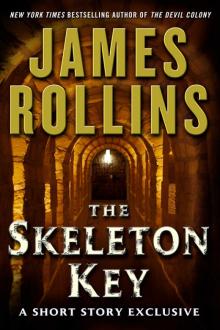 The Skeleton Key
The Skeleton Key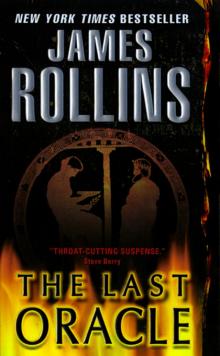 The Last Oracle
The Last Oracle The Judas Strain
The Judas Strain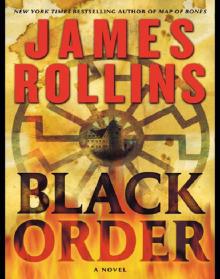 Black Order
Black Order Sandstorm
Sandstorm Ghost Ship
Ghost Ship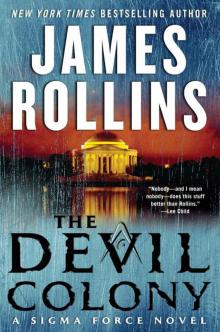 The Devil Colony
The Devil Colony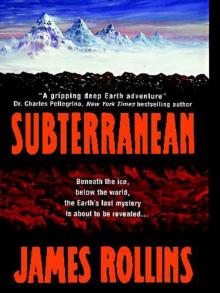 Subterranean
Subterranean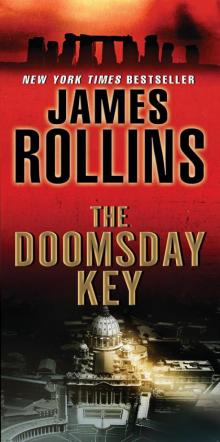 The Doomsday Key
The Doomsday Key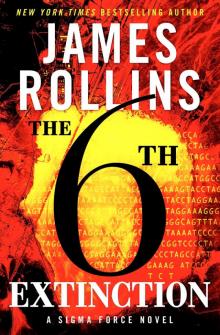 The 6th Extinction
The 6th Extinction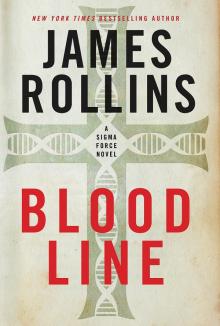 Bloodline
Bloodline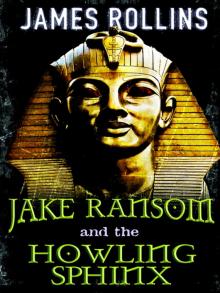 Jake Ransom and the Howling Sphinx
Jake Ransom and the Howling Sphinx The Midnight Watch
The Midnight Watch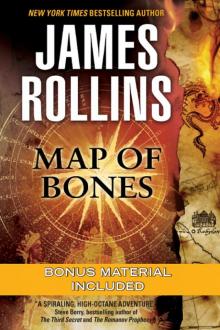 Map of Bones
Map of Bones The Demon Crown
The Demon Crown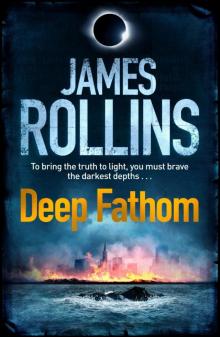 Deep Fathom
Deep Fathom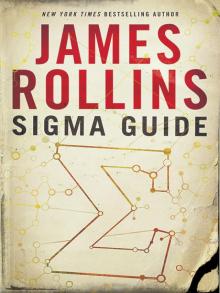 Sigma Guide
Sigma Guide Kowalski's in Love
Kowalski's in Love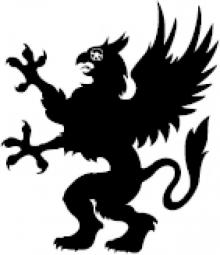 Jake Ransom and the Skull King's Shadow
Jake Ransom and the Skull King's Shadow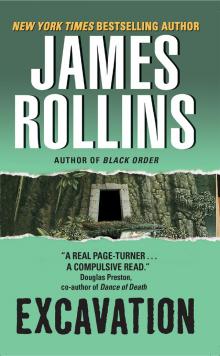 Excavation
Excavation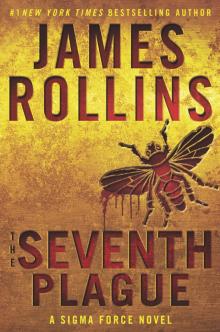 The Seventh Plague
The Seventh Plague Altar of Eden
Altar of Eden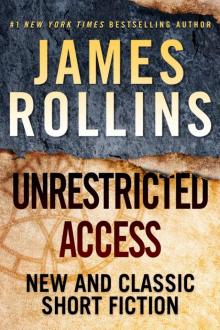 Unrestricted Access: New and Classic Short Fiction
Unrestricted Access: New and Classic Short Fiction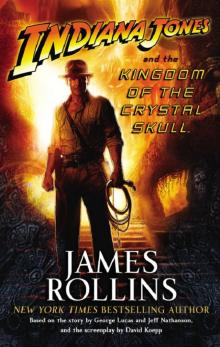 Indiana Jones and the Kingdom of the Crystal Skull
Indiana Jones and the Kingdom of the Crystal Skull Crucible
Crucible The Eye of God
The Eye of God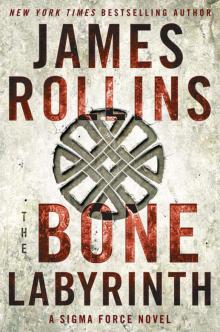 The Bone Labyrinth
The Bone Labyrinth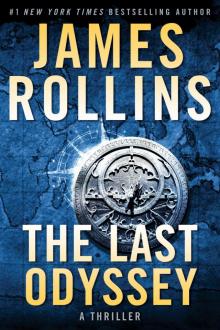 The Last Odyssey: A Thriller
The Last Odyssey: A Thriller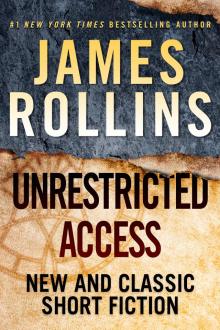 Unrestricted Access
Unrestricted Access Amazonia
Amazonia Blood Brothers: A Short Story Exclusive
Blood Brothers: A Short Story Exclusive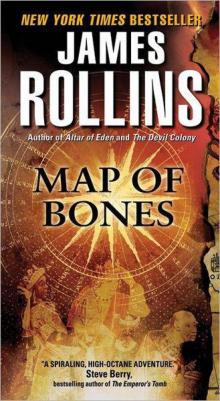 Map of Bones: A Sigma Force Novel
Map of Bones: A Sigma Force Novel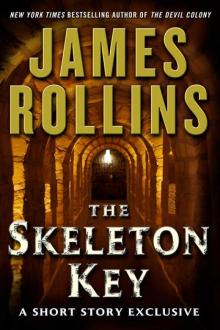 The Skeleton Key (sigma force)
The Skeleton Key (sigma force)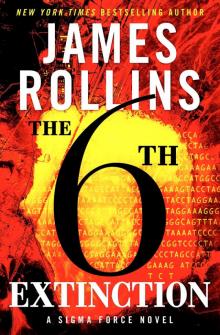 Sigma Force 10 - The Sixth Extinction
Sigma Force 10 - The Sixth Extinction Innocent Blood
Innocent Blood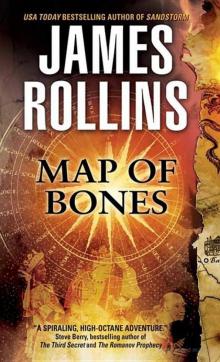 Map of Bones sf-2
Map of Bones sf-2 The Eye of God: A Sigma Force Novel
The Eye of God: A Sigma Force Novel The Eye of God: A Sigma Force Novel sf-9
The Eye of God: A Sigma Force Novel sf-9 The Pit
The Pit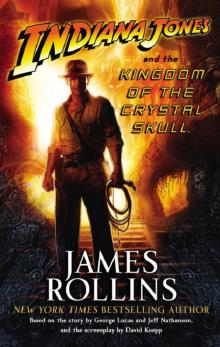 Indiana Jones and the The Kingdom Of The Crystal Skull
Indiana Jones and the The Kingdom Of The Crystal Skull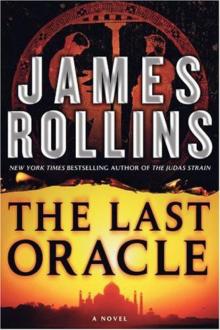 The Last Oracle (2008) sf-5
The Last Oracle (2008) sf-5 City of Screams
City of Screams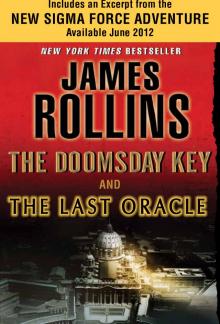 The Doomsday Key and The Last Oracle with Bonus Excerpts
The Doomsday Key and The Last Oracle with Bonus Excerpts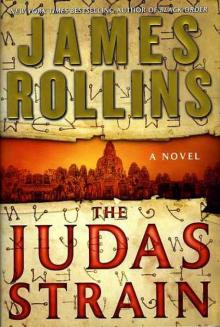 The Judas Strain sf-4
The Judas Strain sf-4 Blood Infernal
Blood Infernal The Demon Crown: A Sigma Force Novel
The Demon Crown: A Sigma Force Novel War Hawk: A Tucker Wayne Novel
War Hawk: A Tucker Wayne Novel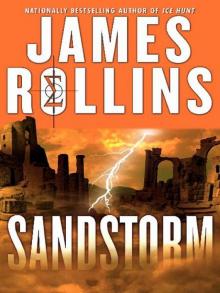 SANDSTORM sf-1
SANDSTORM sf-1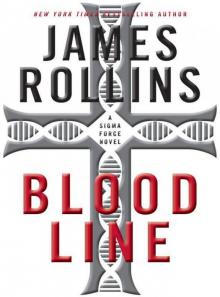 Bloodline: A Sigma Force Novel
Bloodline: A Sigma Force Novel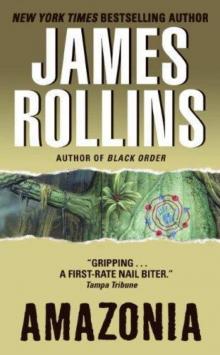 Amazonia: a novel
Amazonia: a novel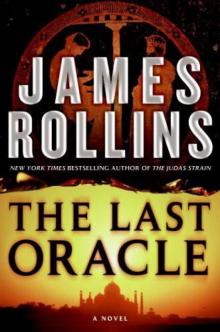 The Last Oracle: A Sigma Force Novel
The Last Oracle: A Sigma Force Novel City of Screams (the order of the sanguines)
City of Screams (the order of the sanguines) Ghost Ship: A Sigma Force Short Story
Ghost Ship: A Sigma Force Short Story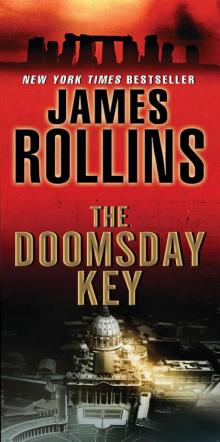 The Doomsday Key: A Sigma Force Novel
The Doomsday Key: A Sigma Force Novel